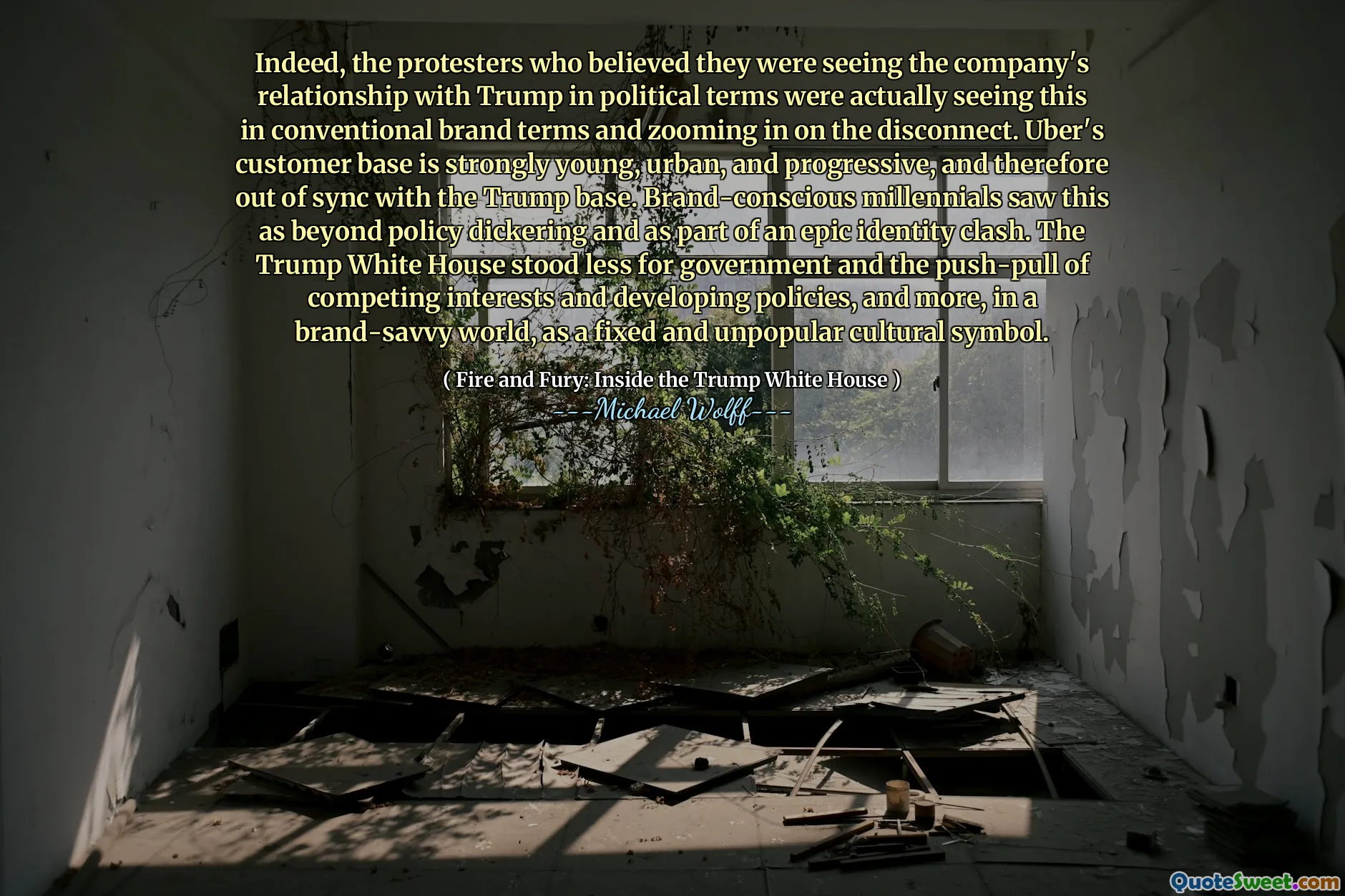
Indeed, the protesters who believed they were seeing the company's relationship with Trump in political terms were actually seeing this in conventional brand terms and zooming in on the disconnect. Uber's customer base is strongly young, urban, and progressive, and therefore out of sync with the Trump base. Brand-conscious millennials saw this as beyond policy dickering and as part of an epic identity clash. The Trump White House stood less for government and the push-pull of competing interests and developing policies, and more, in a brand-savvy world, as a fixed and unpopular cultural symbol.
Protesters interpreting Uber's connection to Trump were viewing the situation through a conventional branding lens, highlighting a significant disconnect. Uber's core users, who primarily fall within the young, urban, and progressive demographic, found themselves at odds with Trump's supporter base. This divergence led millennials, who are particularly conscious of brand identity, to perceive the situation as an identity crisis rather than mere political debate.
In a brand-conscious environment, the Trump administration was perceived not as a conventional government entity dealing with policy complexities, but rather as a strong, culturally divisive symbol. This perception amplified the sense of alienation among Uber's progressive customer base, illustrating the broader cultural tensions at play in contemporary society.











